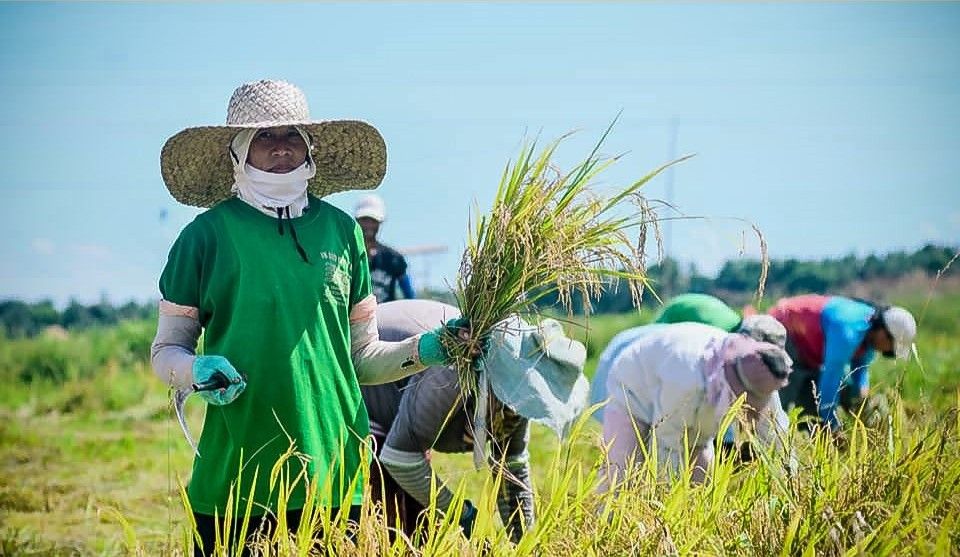Finally a bit of good news for farmers, fisherfolk and agricultural stakeholders: the bill revising the widely- disobeyed agri-agra law of 2009—has lapsed into law for the benefit of the rural community.
Republic Act 11901, or the Agriculture, Fisheries and Rural Development Financing Enhancement Act of 2022 that lapsed into law is a good development for the sector that has long been starving for funding and attention.
The news about this new law—which repeals the Agri Agra Reform Credit Act of 2009—was relayed to reporters citing it as “good news.”
With this new law, farmers, fisherfolk, and other agricultural stakeholders may soon get better access to loans after the bill repealing the Agri-Agra Reform Credit Act of 2009 lapsed into law on Thursday as neither then President Duterte nor current President Marcos Jr. acted on the measure.
Diokno, now finance secretary, said the bill was certified urgent by President Duterte.
Without the signature of the President, the measure “lapsed into law” on July 28, based on the copy of the law shared by Diokno to reporters.
The consolidated version of the bill was passed by both the Senate and the House of Representatives on May 23 but it was not clear when it was exactly transmitted to the Palace, according to Business Mirror.
The 1987 Constitution states that: “The President shall communicate his veto of any bill to the House where it originated within 30 days after the date of receipt thereof; otherwise, it shall become a law as if he had signed it.” President Duterte ended his six-year term on June 30.
Senator Cynthia Villar, chair of the Senate Committee on Agriculture, Food, and Agrarian Reform in the 18th Congress, said concerns were raised because banks would rather pay penalties than lend money to farmers, fisherfolk, and other agricultural stakeholders.
The Agriculture, Fisheries and Rural Development Financing Enhancement Act of 2022 consolidated the previous loan allocation set under the Agri-Agra law, which required banking institutions to set aside 15 percent for the agriculture sector and 10 percent for agrarian reform beneficiaries.
Mandatory for 5 years
Under the new law, all banking institutions, whether government or private, except newly established banks must, for a period of five years from the date of commencement of the banks’ operations, set aside a credit quota, or a minimum mandatory agricultural and fisheries financing requirement of at least 25 percent of their total loanable funds.
To comply with this requirement, banks may lend to rural community beneficiaries to finance agricultural and fishery-related activities or through other means, such as lending for the construction and upgrading of infrastructure, including but not limited to, farm-to-market roads, and the provision of post-harvest facilities and other public rural infrastructure that will benefit the rural community.
Special fund
The law also paved the way for the creation of a special fund coming from the penalties to be imposed on banks for their non-compliance or under-compliance with the mandatory agri-agra credit requirement.
Twenty percent of the special fund should be allocated for agricultural and fishery-related organizational capacity and institution-building programs and activities. This will be implemented by the Land Bank of the Philippines (LBP) and the Development Bank of the Philippines (DBP) with the help of training providers as well as the Agricultural Credit Policy Council and the Cooperative Development Authority.
Net of the 5 percent to be retained by the BSP to cover administrative expenses and 20 percent for agricultural and fishery-related capacity-building programs and activities, the special fund shall be allocated to these implementing agencies:
1.65 percent of the fund shall be made available in the form of credit facility with minimal interest rates and with a minimum collateral requirement to be equally managed by LBP and DBP.
2.35 percent of the fund shall be allocated to the Department of Agrarian Reform for titling and parcelization of landholdings covered with collective Certificate of Land Ownership Awards.
The new law mandated an agriculture, fisheries, and rural development financing system through government and private banking institutions that are expected to improve productivity, income, competitiveness, and welfare of the rural community beneficiaries, including farmers, fishers, and agrarian reform communities.
The financing system shall consist of loans and investments to finance activities that enhance productivity and increase the income of an agricultural and fisheries household, thereby promoting agricultural sector productivity and competitiveness, as well as sustainable development of rural communities.
Tags: #revisedagriagralaw, #farmers, #fisherfolktobenefit, #lapsedintolaw

